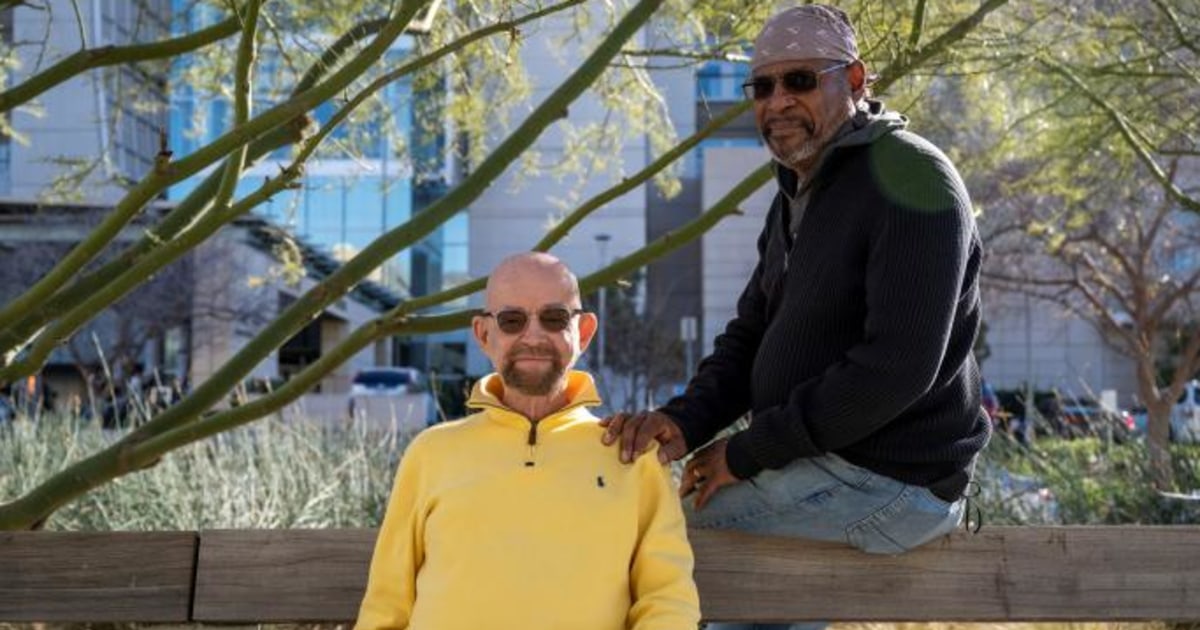Icon: enlarge
People on a shopping street in Los Angeles
Photo:
Robert Gauthier / Los Angeles Times / Getty Images
The coronavirus is constantly changing.
But sometimes with these accidental copying errors in the host cells, new viruses arise that suddenly have an advantage over the wild type and thus become potentially more dangerous.
For example because they can spread more easily.
Such adaptations of the virus worry scientists - they speak of "Variants of Concern".
It is currently the British mutation B 1.1.7 and a variant that appeared for the first time in South Africa and Brazil that are causing concern.
Another mutation has now appeared in California, it has already spread to other US states and has also been detected in countries such as Australia, Denmark and Mexico.
It was first discovered in December, reports the journal "Science".
Studies suggest that this variant of Sars-CoV-2 could not only be more contagious, but also take more violent courses.
According to this, intensive care and deaths occur more frequently - however, the data situation here is still very thin.
According to a study, the new variant achieved a share of around 50 percent in more than 2000 samples at the end of January, while it could not even be detected in samples from September.
They came from patients in 44 California counties.
The researchers refer to the variant as B.1.427 and B.1.429 - it occurs with slightly different mutations.
Under a different naming scheme, it is also referred to as 20C / L452R.
Statistics still weak
However, "Science" also cites scientists who are still skeptical and consider the conclusions of a variant with more severe disease processes and higher death rates to be premature in view of the static data.
In addition, the study, carried out by researchers led by the physician Charles Chiu, a sequencing specialist from the University of California, has not yet been reviewed by independent colleagues.
However, further studies suggest that B.1.427 / B.1.429 is actually more contagious: the infected had a virus concentration in their noses that was around twice as high.
In laboratory tests, the mutations were better able to attack human cells and lung-like structures than control viruses.
Here the rate was around 40 percent higher.
In addition, the new variant is said to have spread much faster in a nursing home than in four comparable facilities in which other virus variants were circulating.
Findings about a poor immune response in the body are also worrying.
Antibodies from people who had gone through infections did not prevent re-infection with the new variant, at least in the laboratory.
People who were vaccinated with the Pfizer or Moderna vaccines may also be at higher risk of further infection.
However, it is not yet clear whether vaccines are less effective against B.1.427 / B.1.429.
According to current knowledge, the effects on immunity do not seem to be as severe as with the variant from South Africa.
Different mutations than the previous variants
B.1.427 / B.1.429 carries different mutations but three seem to be particularly relevant.
They affect the spike protein that the virus uses to dock on human cells.
Especially the L452R mutation seems to increase the infectivity.
It appears to stabilize the interaction between the spike protein and the receptor that the virus uses.
None of the three spike mutations are found in the virus variants from Great Britain, South Africa and Brazil.
According to the New York Times, the researchers came across the variant by chance.
At the end of December, Chiu actually wanted to check how much the British variant had spread in California and therefore sequenced the genome of positive coronavirus tests.
He came across the new mutations.
Almost at the same time, researchers at Cedars-Sinai Medical Center in Los Angeles made the same discovery.
Icon: The mirror
joe








